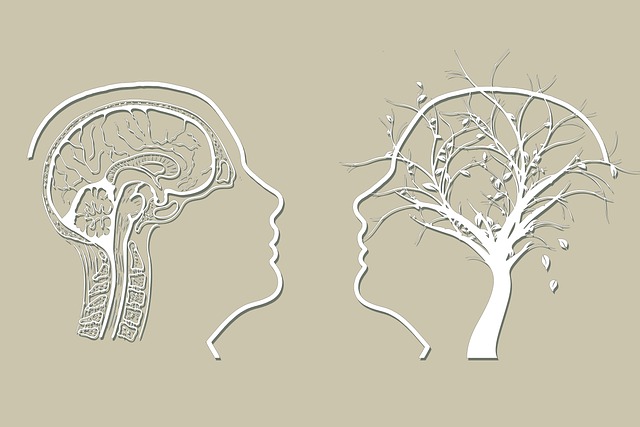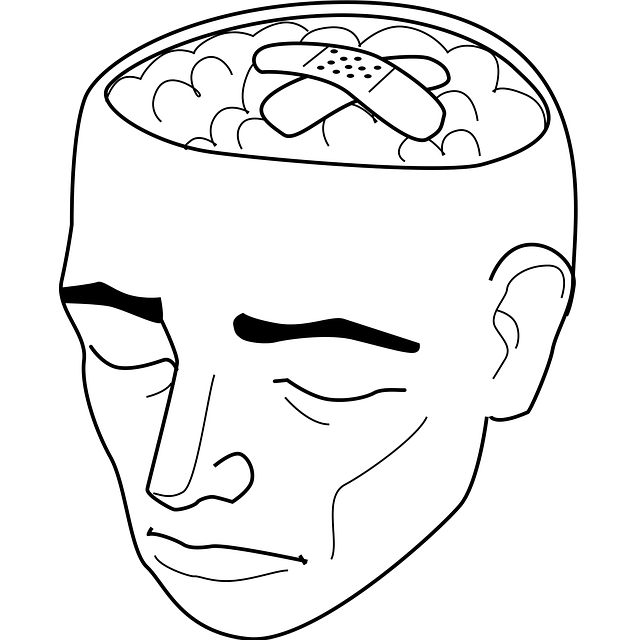Littleton Adolescent and Teen Therapy focuses on empowering teens through positive thinking, addressing unique emotional challenges and fostering resilience. They teach compassion cultivation and mindfulness techniques to reframe negative thoughts, promoting better self-esteem and interpersonal connections. By integrating practices like gratitude journaling into daily routines, they aim to reduce stress and anxiety. The therapy offers tailored strategies combining emotional regulation, empathy building, and compassion cultivation for holistic well-being improvement, measuring success through various qualitative and quantitative methods.
Positive thinking exercises have emerged as a powerful tool in mental health, especially for adolescents navigating life’s challenges. This article explores the benefits of cultivating optimism and provides a practical guide for therapists facilitating such practices. We delve into identifying negative thought patterns common among teenagers and offer strategies to overcome obstacles in therapy. With a focus on Littleton Adolescent and Teen Therapy, learn how measuring success and celebrating progress can enhance young people’s well-being.
- Understanding Positive Thinking and Its Benefits for Adolescents
- Identifying Negative Thought Patterns in Teenagers
- Incorporating Daily Positive Thinking Exercises
- Strategies for Overcoming Common Obstacles in Therapy
- Measuring Success and Celebrating Progress in Littleton Adolescent and Teen Therapy
Understanding Positive Thinking and Its Benefits for Adolescents

Positive thinking is a powerful tool that can significantly benefit adolescents navigating the complexities of adolescence. This period is often characterized by heightened emotions and increasing self-awareness, making it an opportune time to cultivate positive thinking habits. By encouraging a more optimistic outlook, Littleton Adolescent and Teen Therapy aims to empower young individuals to cope with life’s challenges more effectively.
The benefits of positive thinking for adolescents are vast. It can enhance their emotional resilience, helping them better manage stress and anxiety. Regular practice may also contribute to self-esteem improvement, fostering a more positive self-image. Empathy building strategies that promote positive thinking can further strengthen interpersonal relationships and encourage social connections, which are vital for adolescent development.
Identifying Negative Thought Patterns in Teenagers

Teenagers often struggle with a constant stream of negative thoughts, which can significantly impact their overall well-being and mental health. Recognizing and identifying these thought patterns is the first step towards positive change. Many adolescents may not realize that their persistent feelings of anxiety, depression, or anger are linked to specific cognitive processes. For instance, they might internalize critical comments from peers or self-doubt regarding academic performance, leading to recurring negative thoughts.
At Littleton Adolescent and Teen Therapy, we emphasize the importance of understanding these thought patterns through mental health education programs design. By teaching teenagers about compassion cultivation practices and positive thinking techniques, we empower them to challenge and reframe negative thoughts. This process involves becoming more aware of automatic negative thoughts and learning healthier ways to respond to them, ultimately fostering a more optimistic outlook on life.
Incorporating Daily Positive Thinking Exercises

Incorporating daily positive thinking exercises into your routine can be a transformative practice, especially for adolescents and teens navigating life’s challenges. At Littleton Adolescent and Teen Therapy, we emphasize the power of mindset in shaping one’s overall well-being. These exercises don’t have to be time-consuming; short, mindful moments each day can make a significant difference. Start with simple practices like gratitude journaling, where individuals reflect on and write down three things they appreciate about their day. This practice helps shift focus towards the positive aspects of life, fostering a more optimistic outlook.
Encourage teens to engage in these activities consistently, as developing a routine requires dedication. Public Awareness Campaigns Development can play a crucial role in promoting such practices within communities, emphasizing the benefits of mental well-being. Community Outreach Program Implementation initiatives targeting schools and youth centers can introduce positive thinking tools, potentially preventing and mitigating issues related to stress, anxiety, and trauma, for which Trauma Support Services are often required.
Strategies for Overcoming Common Obstacles in Therapy

Implementing positive thinking exercises can be transformative, especially for adolescents and teens navigating emotional challenges. Therapy often encounters obstacles like resistance to change or difficulty in expressing emotions. At Littleton Adolescent and Teen Therapy, we employ several strategies to overcome these hurdles. Firstly, we encourage emotional regulation through mindfulness techniques, helping clients identify and manage their feelings effectively. This fosters a sense of control, making it easier for them to engage in positive thinking exercises.
Additionally, our therapists utilise empathy building strategies to create safe spaces where adolescents feel understood. By mirroring their emotions and validating their experiences, we build trust and encourage open communication. Moreover, we integrate compassion cultivation practices into therapy sessions, encouraging clients to treat themselves and others with kindness. These approaches not only enhance emotional resilience but also cultivate a more positive mindset, ultimately supporting long-term mental health and well-being.
Measuring Success and Celebrating Progress in Littleton Adolescent and Teen Therapy

In the context of Littleton Adolescent and Teen Therapy, measuring success goes beyond mere numbers. It involves assessing the emotional well-being promotion techniques employed, tracking improvements in mental health policy analysis and advocacy, and gauging clients’ enhanced stress management skills. Therapists utilize a multi-faceted approach to celebrate progress, recognizing that each adolescent’s journey is unique. Regular check-ins, feedback sessions, and milestone markers help quantify achievements while qualitative assessments, such as client narratives and parent testimonials, provide deeper insights into the transformative power of therapy.
This holistic measurement strategy ensures that success is not just about reaching specific goals but also about fostering sustainable growth. By celebrating each step forward, whether it’s a breakthrough in communication or managing anxiety, therapists reinforce a culture of positivity and resilience within the Littleton Adolescent and Teen Therapy setting. This approach ultimately contributes to improved outcomes, enhanced coping mechanisms, and better overall mental health for young individuals navigating their personal challenges.
Implementing positive thinking exercises, as demonstrated through various strategies discussed in this article, offers a powerful tool for adolescents seeking personal growth. By identifying and challenging negative thought patterns, individuals can cultivate resilience and enhance overall well-being. In the context of Littleton Adolescent and Teen Therapy, these practices prove effective in navigating challenges and celebrating progress. Encouraging daily engagement with positive thinking has the potential to revolutionize the lives of teenagers, fostering a healthier and more optimistic outlook for the future.














